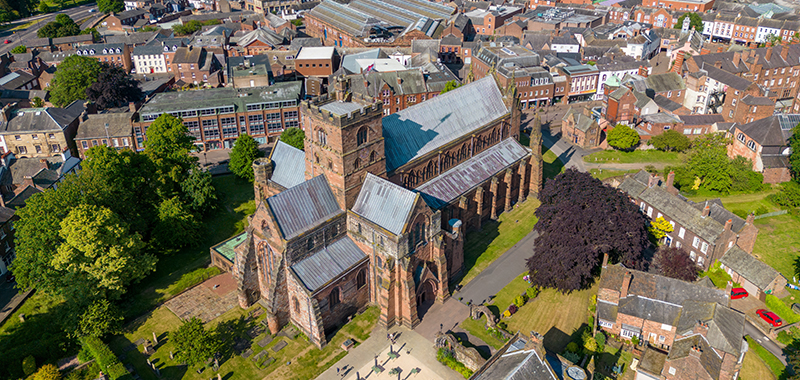
C of E admits ministers could be wrongly accused of conversion therapy
This article by Let Us Pray's James Kennedy was originally published by the Greater Love Declaration.
Last month, the Church of England’s House of Bishops commended, in principle, prayers of blessing for same-sex couples. The ‘Prayers of Love and Faith’ could be used from Sunday 17 December.
It is a retrograde step which ignores the Bible’s teaching, historic Christian doctrine, and the pastoral implications of disregarding God’s good design for mankind.
It also opens the door for spurious accusations to be made against those who choose not to endorse the new liberal moves. It is likely that some LGBT activists will seek to humiliate and punish churches that refuse to use the new prayers.
There are some who claim that those who refuse to endorse LGBT ideology are, in fact, abusing gay people. Campaigners such as Jayne Ozanne say that those who seek to uphold traditional views of marriage are carrying out ‘conversion therapy’.
Conversion therapy in most people’s minds refers to horrendous practices carried out against gay people over half a century ago. It conjures up horror-film images of electroshock therapy. But activists inexplicably say that ordinary prayers and pastoral care are equivalent.
Intriguingly, the guidance released for the new prayers recognises this risk. In a Q&A section it discusses the appropriate response to an accusation of “conversion therapy”.
In a rare moment of insight, the guidance states plainly that: “The decision of a church or minister to adopt the [prayers] or not … does not reflect positively or negatively on its safeguarding practices”.
This is useful insofar as it goes. It makes clear that when congregations in the Church of England choose to uphold orthodox biblical teaching, their theological position is not abusive, coercive or harmful.
The inclusion of the question is, however, a worrying reminder that activists are regularly attacking ordinary churches merely for upholding what the Church has always taught. This is perhaps nowhere more apparent than in the Church of England.
Jayne Ozanne, who leads the Ban Conversion Therapy campaign, was a member of the Church of England’s General Synod until she resigned last month. She pursued changes to the denomination’s beliefs on marriage and sexuality. Despite the votes on ‘Prayers of Love and Faith’, Ozanne said the bishops were unwilling to go far enough.
In her resignation letter she described the denomination as “an institution which continues to condone the abuse of LGBT+ people”. She claimed the teaching of “conservative” churches is causing “untold harm” and is an “urgent safeguarding problem”. She appears to want orthodox believers forced out of the Church of England when she talks about the Bishops having an “erroneous ‘unity at all costs’ strategy”. “We cannot be unified” she concludes.
Many of those who disagree with the new prayers will agree with Ozanne that promoting superficial unity is misguided. But her letter reveals what sits behind the push for a new ‘conversion therapy’ law. Within the Church, it is a battle between two theological outlooks.
Church leaders have written to the Government with their concerns about a new law. Co-author of the Greater Love Declaration (and Let Us Pray official supporter) Revd Dr Matthew Roberts explained:
“We have every sympathy for those who have suffered genuine abuse. Christians firmly reject any attempt to coerce or abuse, as it defies Christian teaching at the most basic level. We are grateful that this is already illegal.
“Instead, many of those demanding this legislation are pushing a narrative that traditional orthodox Christian beliefs are harmful. They have made clear they are unwilling to accept a new law which does not criminalise ordinary believers and Christian leaders.”
Somehow, despite promoting the controversial new prayers, the official stance of the Church of England is that its historic doctrine remains unchanged. The Bishops and General Synod have been clear on that. That means the denomination remains committed to the belief that marriage is only between one man and one woman, for life. It means that the Church maintains the stance that the only right place for sexual behaviour is within marriage.
Any new law against ‘conversion therapy’ could very well capture even this official stance of the Church of England. Is the Government willing to do that? Would it make criminals of all those in the established church who uphold its teaching?
Sex Matters responds to Stonewall’s ludicrous “conversion” claims
2025-05-14 07:17:58
